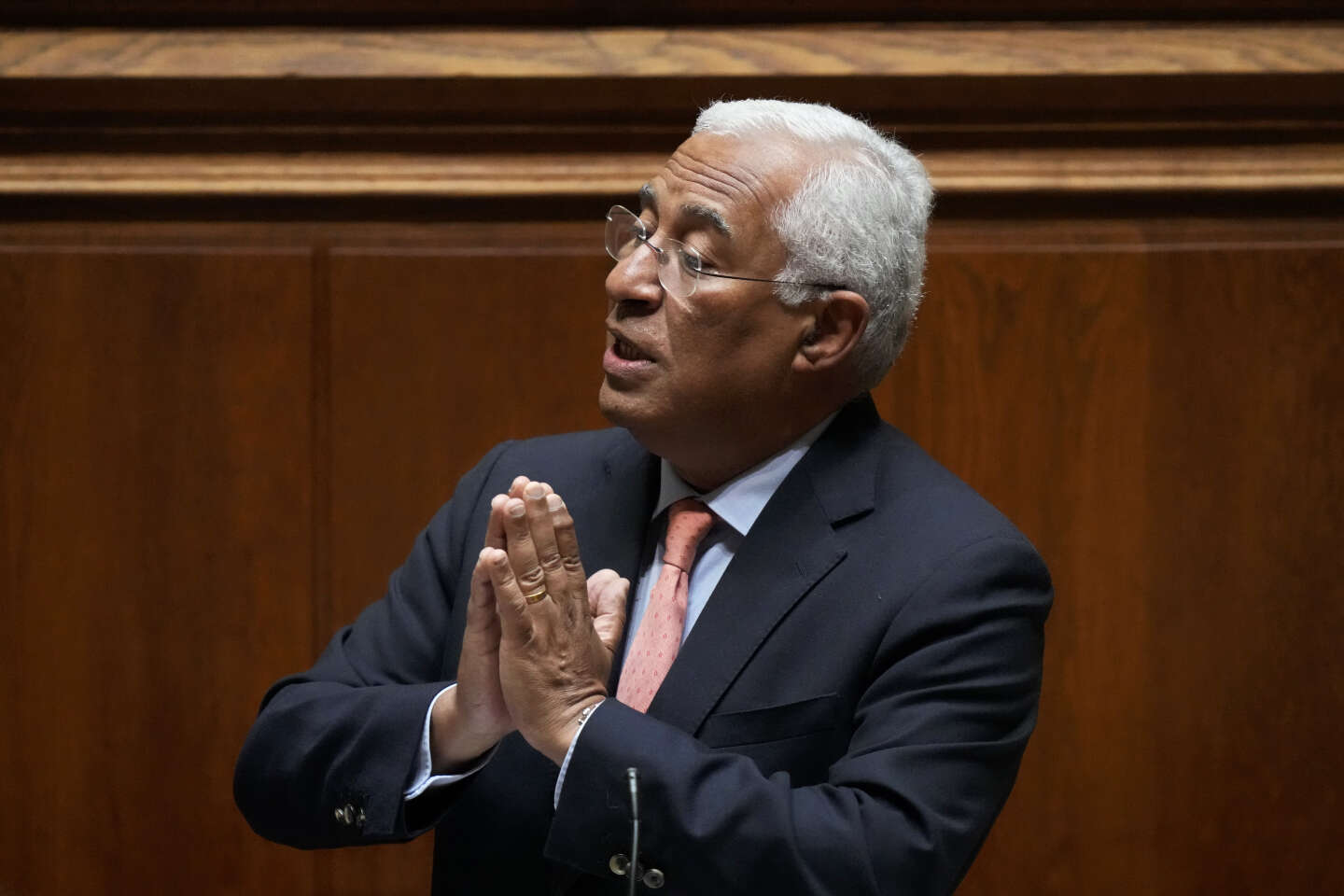
The Portuguese Prime Minister, socialist Antonio Costa, rocked by a corruption scandal, announced on Tuesday November 7 that he had submitted his resignation to the head of state. “The role of Prime Minister is not compatible with any doubts about my integrity. In these circumstances, I submitted my resignation to the President of the Republic,” he told the press.
Portuguese leader Marcelo Rebelo de Sousa accepted the resignation of Antonio Costa, announced the presidency in a press release and will bring together on Wednesday the political parties represented in the Assembly of the Republic – the Portuguese Parliament. The next day, the Portuguese president was scheduled to convene the Council of State, which includes the highest political leaders, before “addressing the country.” If he wanted, he could dissolve parliament and call for early elections.
The head of government was involved in a corruption case related to the awarding of energy contracts, which led in particular to the indictment of one of his ministers and his chief of staff. According to Portuguese media, Mr. Costa spoke to the head of state, the conservative Marcelo Rebelo de Sousa, who also spoke to the prosecutor.
This case concerns the suspicion of “embezzlement, active and passive bribery of political officials and influence,” particularly in the attribution of concessions for lithium exploration and hydrogen production.
Read also: Article reserved for our subscribers Lithium fever is reaching Portugal
During the investigation, “the name and official authority of the Prime Minister were also mentioned by the suspects,” the public prosecutor’s office said in a press release on Tuesday. According to the indictment, Antonio Costa, who is suspected of having intervened in connection with this affair in order to “uncover proceedings”, will be “subjected to an independent investigation”.
Indictment of the Minister of Infrastructure
The investigators are interested in the issuance of licenses for “lithium mining exploration” in the north of Portugal, “a project to generate energy from hydrogen” and “a project to build a data center of the Start Camus company” in Sines, about a hundred kilometers south of Lisbon.
On Tuesday morning, searches were carried out at his official residence, in several apartments, in ministries and law offices. Taking into account the information collected by investigators, the “risk of escape and the continuation of criminal activities,” the judiciary issued “arrest warrants” against his chief of staff, the mayor of Sines and two Start campus administrators.
Portuguese Infrastructure Minister Joao Galamba was charged, as was the CEO of the Portuguese Environmental Protection Agency (APA). The APA announced in early September that it had given conditional approval to a second project in the country to mine lithium, a metal used to make batteries and crucial to the energy transition.
First lithium reserves in Europe
Portugal, which has Europe’s first lithium reserves, is also a main producer, although this production is currently only used for ceramics and glassware. A first lithium mining project also received conditional approval from the APA last May.
The world application
The morning of the world
Every morning, discover our selection of 20 items not to be missed
Download the app
These mining projects are contested by environmental NGOs and part of the local population of this rural region. After his major election victory on January 30, 2022, which gave him an absolute majority that would guarantee the stability of his government, Mr. Costa suffered a decline in his popularity due to repeated scandals.
One of the most notable is “TAPgate”. More than a dozen ministers and state secretaries have already resigned from their positions because of this affair. This scandal erupted almost a year ago after revelations emerged about the payment of a 500,000 euro severance payment to a director of TAP Air Portugal. She then took over the management of the public company responsible for air traffic control and a few months later ended up as State Secretary in the Ministry of Finance.
Read also: Article reserved for our subscribers Lithium, rare earths: the late awakening of the mines in Europe

